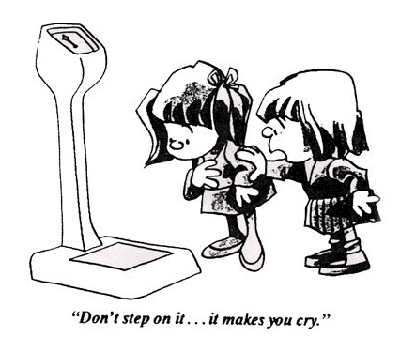 To know, to find, to inform
possibilities the following phrases might be useful.
To know, to find, to inform
possibilities the following phrases might be useful.
Do you think it is possible
- · Is
it likely to….
- · Is
there any chance?
- · Can
she be…?
- · I
think it is going to….
- · I
bet…..
- · It’s
quite possible
- · It
seems probable
- · It
looks like
- · It
is not unlikely
- · It
is more than likely…..
- · I
won’t be surprised
if……
- · In
all likelihood…..
- · Would
there be any possibility of …..?
- · Do
you think we are capable of…..?
- · Would
it be possible for (somebody) to …..?
- · I
think that would be possible …..
- · Is
it possible to …..?
- · Yes,
there is a possibility ….
Asking something if it is possible
- Is
it possible to ... ?
- Is
there any possibility of ... ?
- What
are the chances of ...?
- What
possibility is there that ... ?
- What's
the possibility of ... ?
Saying something is possible
- It's
possible ...
- There's
a good possibility.
- Chances
are ...
- They
will probably ...
- Perhaps.
- That''s
very possible.
- There's
a possibility of ...
Expressing
Curiosity and Desire
· What
I’d really like to find out is …
|
· I’d
be very interested to know …
|
· I’ve
been meaning to ask you.
|
· I’d
like to know …
|
· I
wish I knew …
|
· I’d
love to know …
|
· What’s
on your mind?
|
· I
wonder …?
· I
wonder what it really is.
· I
was just wondering how to do it
· I
wonder why he could do such thing to her
· I
wonder if she likes studying here.
· That's
amazing. How did you do that?
· How
marvelous. How come?
· I
wonder at her directness.
|
“Curiosity”, a feel that happen when we really want to know about something.
Usually “curiosity” happens when we see something strange or
something new. Let’s
describe it as follow:
Situation 1
Sarah : “I’m so curious about the new student.”
Farhan : “Yeah, me too. Let’s wait for her. She loves coming to the library during the break.”
Situation 2
Khadis : “You look so happy. I’m interested to know what happen to you.”
Sarah : “Sure, Dad. I got the highest score for math again.”
Khadis : “Really? So, congratulation.”
Situation 3
Sarah : “Why are you staring me like that?”
Farhan : “I wonder why you could be smarter than me.”
Sarah : “Because I’m your sister, hehe..…”
EXPRESSING
VIEWS
in my view / opinion
I think we would normally drop point of and simply say in his view(in my view / in their opinion / etc):
- In
my view, birds should not be kept in cages.
- How
important is it, in your view, that the twins should stay together? ~ In
my opinion,
it's
very important.
If we want to use point of view, I think we would more
often sayfrom my point of view rather than according to my point of view. Both
these expressions emphasise the position or angle you are judging the
situation from:
- From
my point of view it makes no difference whether you return on Saturday
night or Sunday morning.
- From
a political point of view, the agreement of the UN is extremely important.
- From
the point of view of safety, always wear a helmet when you are on the
building site.
to my mind / etc
In my view, from my point of view, in my opinion are all fairly formal ways
of expressing your opinion characteristic of written English. Less formal
equivalents more characteristic of spoken English, include the following:
to my mind: to
emphasise that this is your opinion
reckon: usually to express an opinion about what Is likely to happen
feel: to express a strong personal opinion
if you ask me: to express an opinion that may be critical
to be honest (with you): to express a critical opinion without seeming
rude
as far as I'm concerned: to express an opinion that may be different
from others'
- To
my mind the quality of their football is just not good enough.
- I
reckon it'll rain later today. Let's go tomorrow.
- I
feel she shouldn't be getting married so young.
- If
you ask me, it's unreasonable to pay for something which should be free.
- To
be honest (with you), I'm surprised you got into university with such low
grades.
- As
far as I'm concerned, the matter is over and done with and we can now move
forward.
academic writing and expressing opinions
If you are required to write an academic essay
in which you are asked to express an opinion (see below), useful alternatives
to in my
view include:
I think that…
It seems to me that…
I would argue that…
I do not believe that…
I am unconvinced that…
I do not agree that…
- How
acceptable is it for wild animals to be kept in zoos?
- I
believe that it is quite unacceptable for animals to be kept in zoos. It
seems to me that when they are confined to a cage they never have enough
room to move around. I would argue that it is kinder to allow a rare
animal to die naturally in the wilds rather than to prolong its life
artificially in a zoo.
making concessions
To achieve balance in any essay, it may be
useful to incorporate opinions that are different from your own. Useful linking
words and expressions include:
Of course, many / some people argue…
It is sometimes argued…
Admittedly…
While…
- It
is sometimes argued that it
is possible for conditions in the zoo to replicate the wild animal's
natural habitat. While this
may be feasible for smaller reptiles, it will never be possible, in
my view, for the larger mammals which
needs acres of space to roam around in.
clarifying an opinion
It may sometimes be necessary to explain a
thought in greater detail. Useful linking expressions for doing this include:
By this I mean…
Here I'm referring to…
To be more precise…
That is to say…
- By
spending money on confining wild animals to zoos, we are wasting
resources. By
this I mean there
are more urgent economic problems to deal with: hospitals and schools
should be our first priority







